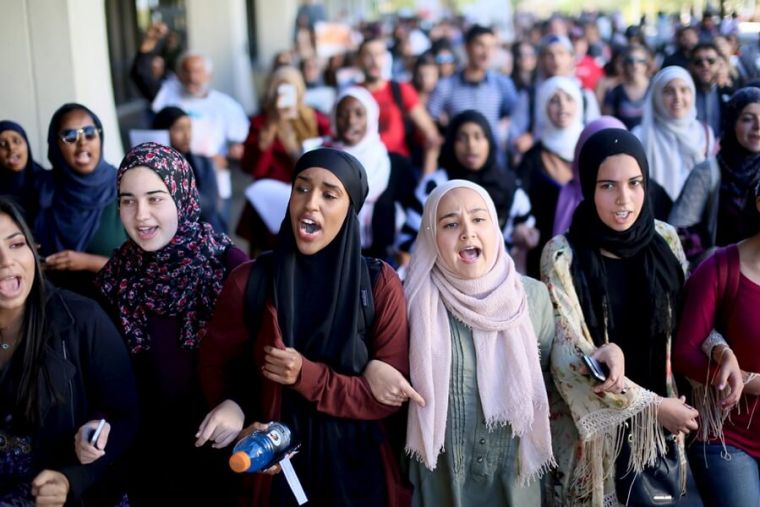Effects of rising anti-Islam sentiments reach U.S. classrooms as Muslim students draw attention

The rise of anti-Muslim sentiments in the United States in the wake of terrorist attacks in Paris and San Bernardino has affected the attitudes of students in classrooms.
When her class was watching a TV news report on the Paris attacks, 12-year-old seventh-grader Farah Darvesh noticed that she became the centre of attention.
"When they said Muslim terrorists did it, everyone's heads turned and all eyes in the room were on me," said Darvesh, one of only three Muslims at the middle school in Columbus, Georgia, according to The Guardian.
She was asked by one of her classmates a few weeks later, "Why did your people kill those people in Paris and San Bernardino?"
Darvesh said she has "gotten used to people joking" that she was a terrorist.
"Before the attacks I was mostly treated like everyone else. But now I'm having to answer questions about my religion and the actions of people I don't even know. It's a lot of pressure. I mean, I'm only 12," she said.
She replied to her classmate, "Don't ask me, ask them. Do I ask you why your people are shooting up schools?"
"That shut him up," she said.
She added, "I'm feeling the same way everybody else is – I'm mad at ISIS, too. They're killing innocent Muslims everywhere, too. The shooting in San Bernardino happened 9 miles from my cousin's school. It's very scary that she was so close to danger. But exactly because I'm a good Muslim, I'm not going to take my anger out on anyone."
Young Muslim American students, many of whom were not yet born when the September 11, 2001 attacks in the U.S. took place, are in the midst of a heightened atmosphere on terrorism.
Republican presidential candidate Donald Trump and other politicians have fuelled Islamophobia in the U.S. that has reached boiling point with threats, vandalism and violence against Muslims.
This has reached American classrooms.
Muhammad Rahman, a 15-year-old at a Chicago high school, said he gets asked "Is that a clock or a bomb?" at least once a day since the arrest of 14-year-old Ahmed Mohamed.
"Even the nicest people, who you wouldn't expect to be mean, say stuff. I know my friends aren't racist of course, but the jokes aren't funny when they're disrespectful. Every day, they make sure to let me know that I'm different from everyone else," he said.
A school principal in Georgia apologised last week after one teacher asked a Muslim student if she had a bomb in her backpack.
Last November, three boys allegedly beat up a sixth-grade girl wearing a hijab and called her "ISIS."
The Council on American Islamic Relations (CAIR) released a 2014 study that showed that 29 percent of students who wore hijab experienced offensive touching or pulling of their scarves.
A survey among Muslim students by CAIR last year showed that 55 percent said they were bullied in school because of their faith.
"At a crucial time in their identity development, they're suffering from chronic trauma," said Dr. Halim Naeem, a psychotherapist and president of The Institute of Muslim Mental Health.
The CAIR survey said the sentiment that teachers don't take Islamophobia seriously is shared by a majority of Muslim American students.
One in five Muslim students reported experiencing discrimination from school staff. A California teacher recently asked her class, "Who thinks Muslim should die?" and called a Muslim student in class a terrorist.
According to experts, addressing the problem requires the cooperation of non-Muslim parents and teachers to educate their kids.
Tensions rose in August County, Virginia, recently when schools were closed after an assignment on Arabic calligraphy drew protests from the community.
Lana Alshahrour, a 12-year-old Syrian Muslim at a Chicago middle school, said a recent debate about refugees in her class prompted classmates to say that Middle Eastern refugees should not be allowed into the U.S. "because they could be ISIS."
"They think if we don't let anyone in here, then the terrorism stays overseas. But ISIS doesn't need to send fighters to America – they can recruit from the Internet. Besides, ISIS is not the root of the refugee problem," she said.











